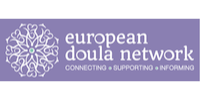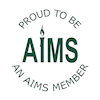By Michelle Every When people connect with me, as they look into training to be a doula, I often hear the same theme coming up “How do I make sure I know enough?” “Will clients expect me to know everything about birth or the early days with a newborn?” “I am worried that the client…
Michelle Every
When a baby dies
By Michelle Every What do you say when someone – a doula client, a friend, a relative – tells you that they have experienced a miscarriage or stillbirth? Michelle Every offers some support, information and signposts. When I trained to be a doula in 2007 I was astonished and saddened that supporting baby loss was…
Trusting your instincts with Michelle Every
By Michelle Every,Mentoring Coordinator and Supporting Every Birth facilitator On the Nurturing Birth Doula course we talk about how to empower clients by creating a safe space for them to be able to let go of other people’s expectations and to listen to their own instincts on what feels right for them. In reality, as…
A reflection on mentoring
By Michelle Every Nurturing Birth Head of Mentoring, Michelle Every, shares her thoughts as one of the doulas she is mentoring comes to the end of her Initial Mentoring Programme “Nearing the end of mentoring a doula through her Nurturing Birth 15 month Initial Mentoring Programme I have been reflecting on how our relationship has…






